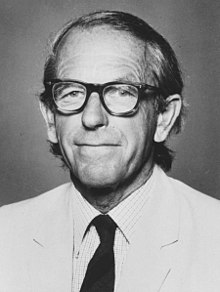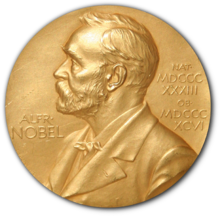Frederick Sanger is a twice recipient of the Nobel Prize for
A. Chemistry in 1958 and 1980
B. Physics in 1956 and 1972
C. Chemistry in 1954 and Peace in 1962
D. Physics in 1903 and Chemistry in 1911
Answer: A
Source:
A. Chemistry in 1958 and 1980
B. Physics in 1956 and 1972
C. Chemistry in 1954 and Peace in 1962
D. Physics in 1903 and Chemistry in 1911
Answer: A
Source:
Frederick Sanger
Frederick Sanger (13 August 1918 – 19 November 2013) was a British biochemist who won the Nobel Prize in Chemistry twice, one of only two people to have done so in the same category (the other is John Bardeen in physics), the fourth person overall with two Nobel Prizes, and the third person overall with two Nobel Prizes in the sciences.
 |
| Frederick Sanger is a twice recipient of the Nobel Prize for |
In 1958, he was awarded a Nobel Prize in chemistry "for his work on the structure of proteins, especially that of insulin".
In 1980, Walter Gilbert and Sanger shared half of the chemistry prize "for their contributions concerning the determination of base sequences in nucleic acids".
The other half was awarded to Paul Berg "for his fundamental studies of the biochemistry of nucleic acids, with particular regard to recombinant DNA".
